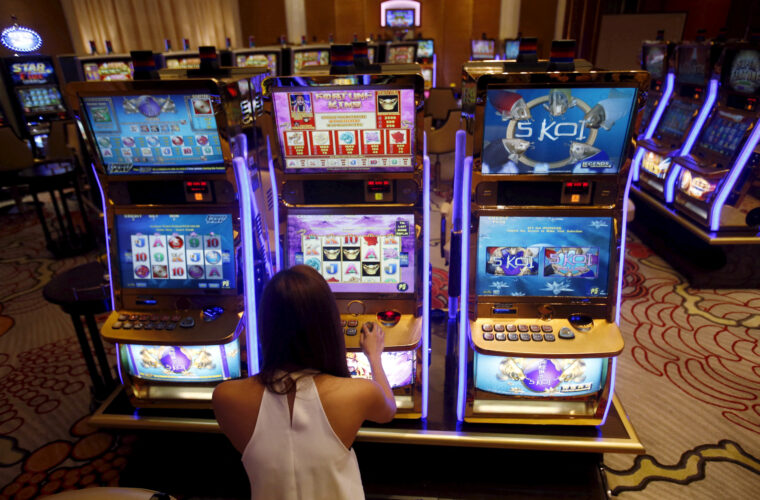Internet cafés represent a big part of Korean culture. In South Korea, it is a place with hundreds of gaming computers stored in a compact space, often underground, attracting people to play high-resolution, heavy-engine games while sitting on a tall, comfortable gamer chair. Dubbed “PC bang (personal computers room)”, many people would spend hours in this closed area with their friends or alone, paying one to two dollars per hour. If they want, people can order meals, snacks, and drinks from their seats. Recent reports and statistics forecast doomsday of the once beloved – or controversial – culture in the country, especially since the pandemic. But would it really go extinct in South Korea?

Olden Days of PC Bang Business
The first-ever PC bang, or something similar to that, can be traced back to 1988, according to the National Museum of Korean Contemporary History. The owners were Ahn Sang-soo and Geum Nu-ri, members of the country’s first telecommunication social club “EMPAL”. The café – titled “Electronic Café” – they opened was in the heart of Seoul, having two 16-bit computers connected by a telephone line.
About six years later, places named “internet café” emerged in Seoul. Jung Min-ho opened the internet café “BNC” in Seocho-gu District, and several chains with similar concepts but under different names, such as cyber café or network café, followed suit. Visitors of these cafés could enjoy simple internet-based games, like online Go, but the main purpose of the visit was to spend time with other people there with refreshments (Yes, like any café we know).
The Asian Financial Crisis in 1997 sparked the PC bang trend boom. Many PC bangs started to have internet surfing and gaming services as their main profit sources. People losing jobs and the introduction of hit games like StarCraft fueled the spread of PC bangs nationwide. Reports indicate that South Korea saw the opening of more than 20,000 PC bangs from 1998 to 2000.
As people stayed more time inside PC bangs, several people raised concerns. One problem was the internet game addiction. Reports covered stories of young adults spending hundreds of dollars on PC bangs or having sudden, unexpected deaths from playing games for more than ten hours a day over a few days. PC bangs allowing easy access to adult content even for minors and being a gathering place for children who ran away from their homes were also named as problems then.

The decline of the PC Bang Industry?
The number of PC bangs in South Korea has gradually decreased since 2009, falling below 20,000 in the next year. The pandemic was terrible news for an already declining trend. People preferred to use the internet at their homes rather than at PC bangs. The number decreased to 9,300 in April 2022 and 8,900 in July of the same year, even though several reports expected it to increase when the pandemic receded and people spent more time outdoors.
Worse, there aren’t as many people opening PC bangs as before. Per the 2022 Game White Paper published by the Korea Creative Content Agency (KOCCA), over 75 per cent of PC bangs were established between 2015 and 2019, entering three to six years of business. Between 2010 and 2014, businesses opened more than 14 per cent of them. This means roughly nine out of 10 PC bangs were established before 2019, and the industry is led by people who already have invested years in their business.
One reason for the decline can be the change in the gaming culture. While previous generations enjoyed playing games with their friends at PC bangs, Millennials and Gen Z often play games on handy mobile devices. In a 2022 survey of 4,462 gamers conducted by KOCCA, 62% said they play mobile games. People who play PC games were half of that, 31 per cent. The respondents said they visit PC bangs 6.3 times a month, a decrease of 0.9 times compared to 2018.
From PC Bangs to YouTube Streams
In addition, the gaming culture isn’t limited to playing games either – it includes watching, accompanied by the growth of video and streaming platforms like YouTube and Twitch. As of 2022, YouTube was the app that had the most prolonged on-screen hours in South Korea. An average Korean spent 24 hours a month on YouTube, according to data insight agency Wiseapp. With videos of their favourite or exciting games, some people prefer to watch playthroughs instead of playing them on their own at PC bangs.
However, it may be too early to say that the industry is approaching its end just by looking at the number of up-and-running cafés. The number of PC bangs has decreased over the years, but the average number of computers per PC bang has increased. PC Bang research agency Gametrics said that the average computer number per shop had surged from 63.16 in 2008 to 78.51 in 2015, which was a 24 per cent increase. This statistic may imply that PC bang owners are sizing up their businesses while there are fewer entries to the market than before.

Around the World: Internet Café Faces Extinction
Internet cafés, a venue that once served as an online networking platform, have been on a decline around the world. The distribution of internet connections across households, wide use of smartphones, and COVID-19 were some of the reasons for the business’s near-extinction. Since 2020, China closed over 12,000 internet cafés; allegedly, 50 per cent of nationwide internet cafés closed their doors in Malaysia. To survive, several internet cafés are transforming into more than a venue for internet connections.
For example, the Indian news outlet Patriot interviewed internet café owners who managed to attract customers by providing diversified services, such as computer lessons, photocopying, or printing. In addition to tech-related or publishing services, some cafés in Mexico serve as day-care centres for kids to study and surf the internet. In Tokyo, Japan, internet cafés are homes to people who don’t have any places to go. Open 24 hours seven days, more than 5,000 homeless people were living at these cafés as of 2022. Some cafés extend their business to product sales as well. Reports covered cafés in Dublin, Ireland, offering various services and secondhand mobile phone sales. A worker of The Internet Cafe + More in Dublin told The Circular, “You can’t only have internet anymore. It’s very quiet”. The outlet said these types of shops emerged in business for only a few years, not so long ago.
Internet Cafés: From Daily Hub to Uncertain Future
The reputations of internet cafés have changed. In the public sector, not a few politicians are planning to crack down on “illegal” cafés that promote gambling or illicit file sharing. Their policies may have a chilling effect on the business. In the private sector, café owners are providing more services and products to lure customers in an attempt to adapt to the changing environment. Internet cafés used to be a part of people’s daily lives for tracking packages or placing an Amazon order, but we now see fewer shops in city centres. Whether it will remain as the relic of the past or transform into a whole different business would be a question that many will keep an eye on in the next few years.



